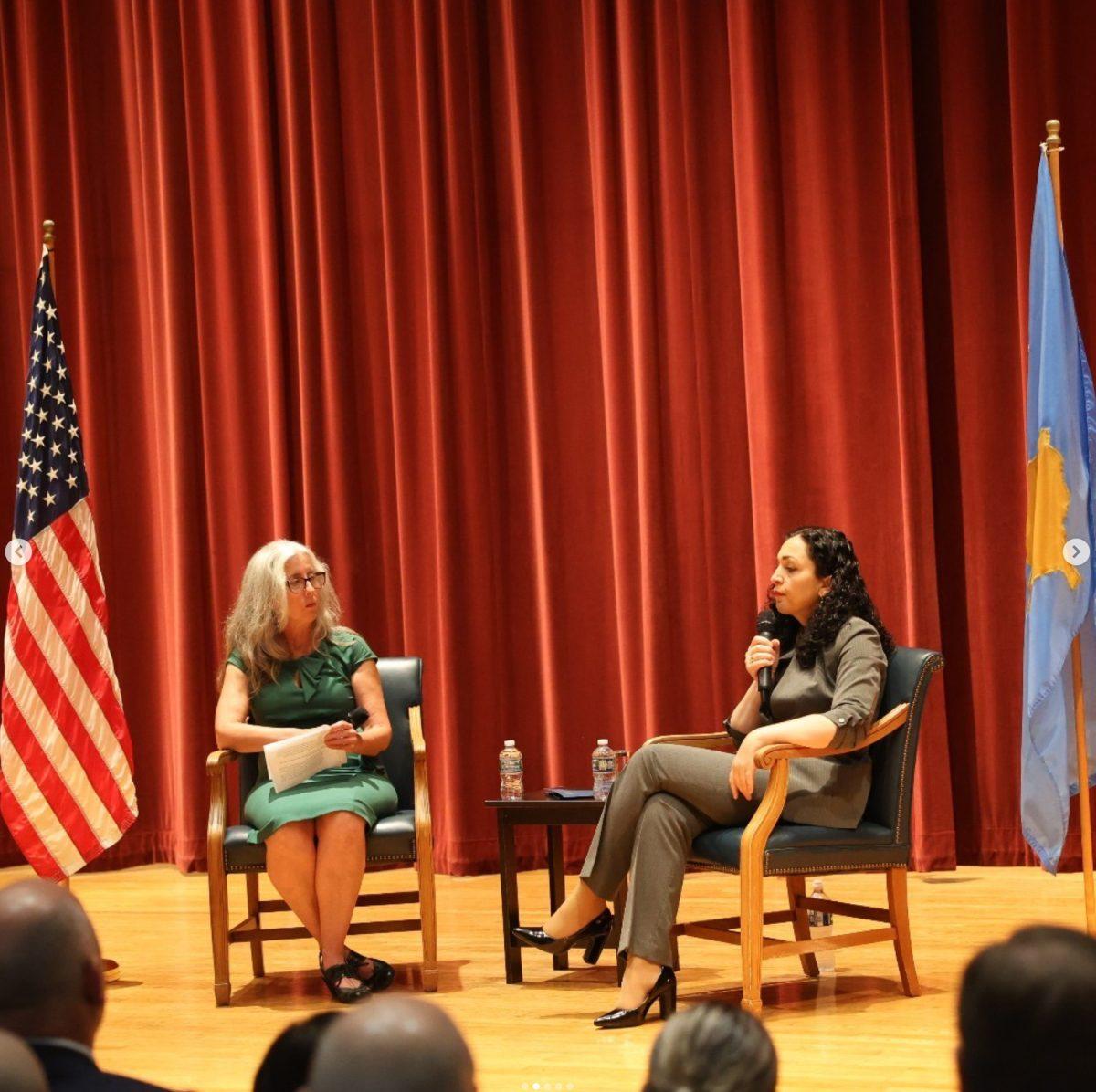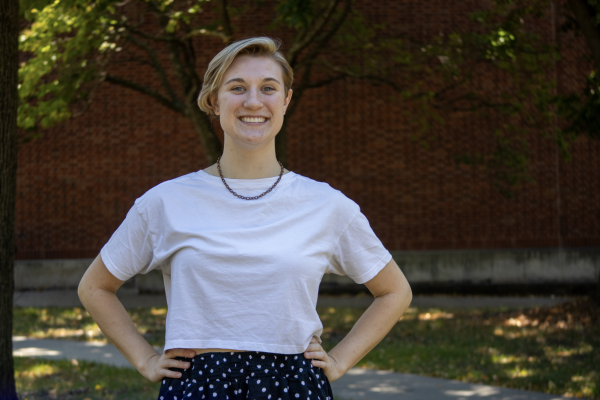Students and faculty filled Sheslow Auditorium to listen to a moderated conversation between Dr. Vjosa Osmani, President of the Republic of Kosovo, and Professor Debra DeLaet. During his speech, President Marty Martin also presented Osmani with the honorary Global Citizenship Award, which is typically awarded to Drake faculty that have performed outstanding work in global engagement. Osamni was honored for her lifelong efforts improving Kosovo.
“This is a person who is indeed not just changing her country but changing the world,” Martin said during the event.
Drake faculty have led two professional development workshops to support Kosovo’s K-12 teachers, focusing on rebuilding the country following the end of the 1998-1999 war between Serbia and Kosovo. Iowa and Kosovo became sister states in 2013, and in 2016, Kosovo established a consulate in Des Moines that remains Iowa’s only foreign diplomatic office. Prior to welcoming Osmani to campus, the Office of Global Engagement worked closely with the consulate on the marketing, security and logistics of the event.
During the event, Drake University and the University of Pristina, a public university in Kosovo’s capital city, expanded their partnership with a new academic contract. Martin said he hopes the academic contract will create new opportunities for students by facilitating education, cultural and research collaborations between the two universities.
“Our international partnerships are central to our global efforts,” Martin said. “These relationships open doors around the world for our students, faculty and staff to meaningfully connect and collaborate with and grow. The Kosovo partnership is an example of the kind of impact we strive to achieve for context.”
Prior to becoming president, Osmani was a lawyer, an advisor to a previous president of Kosovo and a member of the National Assembly of Kosovo. Her journey started as a political activist when she was a teenager. She said she wanted to honor those who had lost their lives in the violence leading up to Kosovo’s independence back in 2008.
During the conversation, Osmani discussed a speech she made in front of the United Nations’ International Court of Justice in which she argued for Kosovo’s independence. Despite “a number of issues” concerning international law, she stressed that Kosovo’ Declaration of Independence represented “the will of the people.” In the end, the court voted 10-4 to approve Kosovo’s independence, which is recognized by 101 out of the 193 UN member states — excluding Russia, China, India and Brazil.
“If you want to serve a country that has been destroyed to ashes, as a citizen of that country, you feel that you have to do something — whether it’s in your neighborhood, in your community, your school or in politics.” Osmani said. “It doesn’t really matter what position is given to you. You work with what you have.”
Speaking from her experiences, Osmani advised listeners to be patient. She encouraged people to stay true to their mission and said that she started with a mission to serve her country and not a mission to become president.
“What is important is to never stop being an activist at heart. No matter the position that you have, never stop being the activist that you are at heart,” Osmani said.
Including Osmani, the Republic of Kosovo has had two women presidents out of five. Despite this, Osmani believes Kosovo has a long way to go in terms of gender equality. Osmani mentioned that, following the latest elections, more women were directly elected to Kosovo’s parliament than in any previous election.
“It’s still not enough unless we have made sure that, through our positions, we have removed the challenges that every woman in Kosovo faces,” Osmani said.
Under Osmani’s leadership, the Republic of Kosovo is implementing initiatives that support the employment of women, which she believes will allow a lot of women to become financially independent. This in turn allows women more opportunities, an important step in the fight for gender equality. Osmani said she faces biases every day, such as when she travels internationally and people mistake her husband to be the president.
Osmani said biases don’t stop her and shouldn’t stop anybody — in fact, they should do the opposite. She also recalled videos sent to her of little girls cheering at their TV screens when it was announced she was elected president and said she is encouraged by the young women of the future.
“Every single day when you feel like you’re facing so many difficulties — and I feel that a lot — I just think of the little girls who are watching and who hope that I never give up,” Osmani said.








